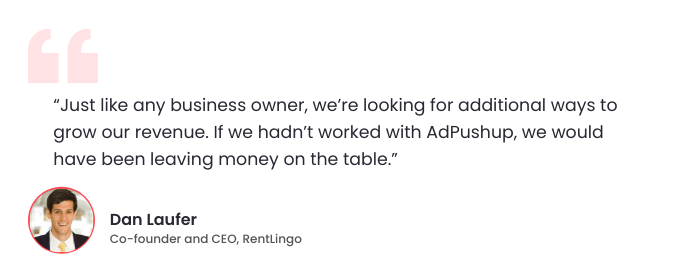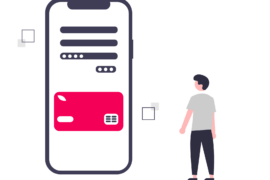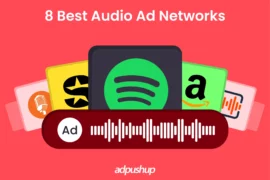If you work in ad tech, you must have heard the term “Deal ID”. However, most people (even from the ad industry) don’t really know what deal ID is and why it’s used in programmatic ads.
Let’s change that. Suppose, an advertiser gets a chance to bid on inventory before it becomes available for open bidding. In order to close the deal, the publisher’s inventory should match the advertiser’s ad requirements (format of inventory, price agreement, and more). Once the publisher and advertiser negotiate the terms, a Deal ID is formalized.
So, What is Deal ID?
Deal ID (or Deal Identifier) is a unique identification number given to buyers and sellers which helps them to identify each other. These numbers are used to match publishers and advertisers, individually, depending on the requirements of both parties. These requirements could be minimum bid price, format of ad unit, position of inventory on the publisher’s website, and more.
Deal ID was introduced to provide more flexibility and control to publishers and advertisers. Using Deal ID, publishers can easily identify advertisers who might be interested in their inventory and then invite them to purchase it (or bid on it).
Google Ad Exchange uses deal ID to carry out private auctions and preferred deals. Advertisers can bid on impression for invited auctions using deal ID before it is sent for open exchange.
What are the Advantages of Deal ID?
Deal ID is designed to make it easier for buyers and sellers to find each other. It provides advertisers the unique opportunity to access private inventories and run creative campaigns. And publishers have peace of mind knowing that their inventories are in good hands.
Here are the detailed benefits of having a deal identifier.
- Flexibility:
Private dealing was limited in a way that publishers were unable to find the advertiser specifically interested in their inventory. Deal ID resolved this problem. Publisher can now find interested buyers by simply checking their deal identifiers.
- Control:
Publishers use private deals to sell their premium inventory with greater control and precision. Deal ID helps provide that control by enabling the publisher to specify the position of ad space and even the format of the ads as well.
- Deal at Better Price:
Publishers can invite various advertisers and use their Deal ID to identify their needs. This gives them a chance to land deals at better prices. On the other hand, advertisers get hold of premium inventories at an affordable price.
- Transparency:
Unlike RTB, where publisher’s inventory is available for the entire market, private marketplace and programmatic direct are more private. As both publishers and advertisers are interested in a deal, they openly discuss the terms and negotiate for better outcomes which ultimately bring out transparency in the deal.
Disadvantages of Deal ID
AdExchanger mentioned in one of their articles, “Programmatic is supposed to bring automation and ease to ad buys, but the process of executing a deal ID is at times even more arduous than the old IO. As it stands, the publisher creates a deal ID, a unique number, and passes it manually to the buyer via a spreadsheet or email. Then the buyer manually inserts the number into their DSP to execute the buy.”
The real problem starts while setting up the deal identifier. As the process is more manual than programmatic. We all know, humans are prone to make mistakes, especially, while dealing with numbers. Even when publishers and advertisers know a deal can bring meaningful revenue, there is always some discomfort about how things can go wrong.
However, this messy nature of Deal ID can be resolved if the process can be designed to be more automated.
There are other challenges with deal IDs. In the case of programmatic direct, management becomes difficult using the deal ID. For instance, an inventory can be ignored as the buyer didn’t place a bid on the inventory or his bid was not satisfying the price agreement and hence rejected. Due to such management issues, many DSP’s do not support deal ID.

What’s Next
Deal identifier was introduced to introduce more flexibility in the display advertising industry. But it came along with a few management issues. These issues with deal identifiers require attention. Now that we already have advanced alternatives like Private Dealing Room, one can say, the market is too competitive at this time and has space for only the best.
FAQs
By clicking on the Deal in the Deals pipeline in the Pipedrive web app, you can manually find the deal id. Check the last digit(s) of the URL. Here’s an example URL, https://companydomain.pipedrive.com/deal/222, which means the Deal ID is 222.
Publishers use Deal IDs, also known as Private Marketplaces or PMPs, to offer buyers a curated selection of inventory at a CPM price based on an invitation only auction. With Improve Digital, publishers can connect to buyers using Demand Partners (DSPs).
In contrast to traditional (often manual) methods of digital advertising, programmatic advertising uses automated technology for media buying.

Shubham is a digital marketer with rich experience working in the advertisement technology industry. He has vast experience in the programmatic industry, driving business strategy and scaling functions including but not limited to growth and marketing, Operations, process optimization, and Sales.







